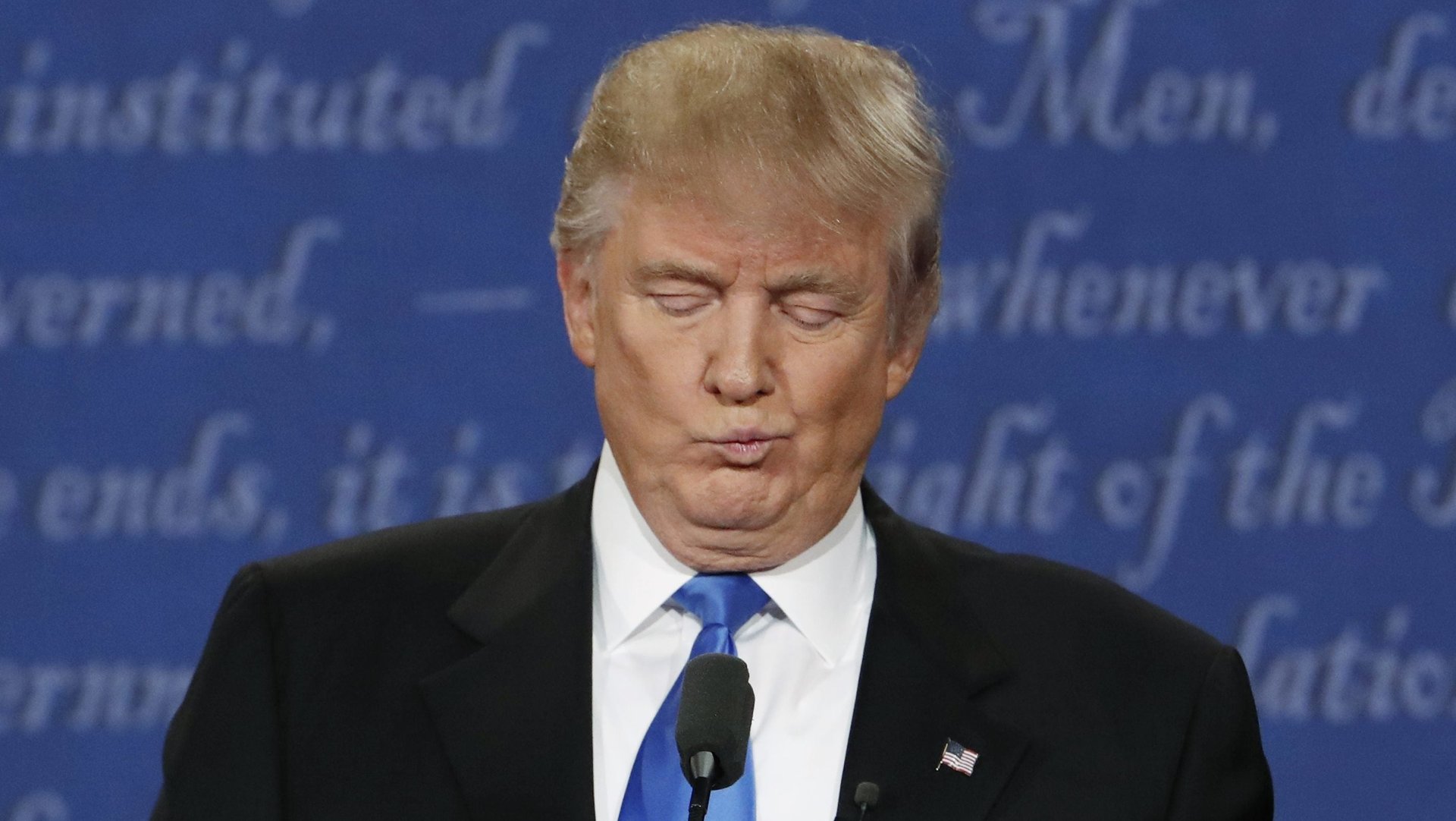In US history, only two VP candidates were withdrawn: one’s health was called into question and the other died
No US presidential candidate has ever withdrawn before the election. And yet, there has never been a presidential candidate from a major party quite like Donald Trump.


No US presidential candidate has ever withdrawn before the election. And yet, there has never been a presidential candidate from a major party quite like Donald Trump.
There’s a first for everything, but his withdrawal is unlikely. Trump has said he’s not quitting.
“I’d never withdraw,” he told the Washington Post. “I’ve never withdrawn in my life.” As the chorus of Republicans calling for Trump to step down grows, few historical precedents exist to give us any guidance.
The closest one in modern American history is the removal of Democratic vice presidential nominee Thomas Eagleton in 1972. Eagleton accepted the Democratic nomination for VP at the party’s convention with presidential candidate George McGovern. After a history of depression, hospitalization and electric shock therapy emerged, party officials determined he posed too much of risk in the White House. Eagleton was forced to relinquish the nomination just 18 days later. Since it occurred long before any filing deadlines, McGovern named a new running mate, Peace Corps Director Sargent Shriver, later confirmed by Democratic party officials. The duo lost the popular vote by the largest margin in US presidential history.
The next closest example dates back to 1912 when a Republican vice presidential candidate died a few days before the general election. James Sherman remained on the ticket for the election alongside incumbent Republican candidate William Howard Taft. After Taft lost the election, the VP’s name was later replaced in a purely formal act.
In 1872, Horace Greeley, the candidate for the Liberal Republican party, lost the 1872 election but died before the Electoral College could vote. It had no effect on the outcome.